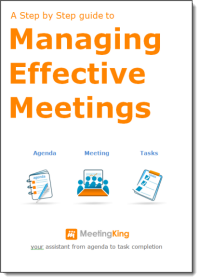
In today’s fast-paced work environment, effective meetings are crucial for communication, collaboration, and decision-making among colleagues. Active listening plays a pivotal role in these meetings, allowing you to better understand your colleagues’ ideas, perspectives, and concerns. By actively listening and looking for ways to improve listening skills, you can gather valuable insights, make informed decisions, and increase productivity.
In this blog post, we will explore the significance of active listening in meetings and provide 7 tips to enhance your listening skills. These tips will empower you to engage actively, comprehend information effectively, and contribute meaningfully to discussions.
Why Active Listening is Key to Meeting Success
Listening is a critical aspect of effective communication. Moreover, when we listen actively, we foster stronger relationships and build trust within the team. This creates a collaborative environment where everyone feels valued.
On the other hand, when we fail to listen effectively, the consequences can be detrimental. Misunderstanding ideas, missing important information, and causing unnecessary conflicts are common pitfalls of poor listening skills. In addition to this, people will feel that they are not being taken seriously. By sharpening our active listening abilities, we can overcome these challenges and create a more harmonious and productive meeting environment.
Tips for Mastering the Art of Listening in Meetings
1. Be Present and Attentive
One of the most important things you can do in a meeting is to be present and attentive. This means being fully engaged in the conversation and actively listening to what others are saying. Avoid distractions like checking your phone or browsing the internet, and make eye contact with the person speaking to show that you are paying attention.
2. Ask Clarifying Questions
When someone is speaking, it is important to ask clarifying questions to ensure that you understand their message. Consequently, this can help you avoid misunderstandings and ensure that everyone is on the same page. Repeat back what you have heard in your own words to confirm that you’ve understood the message correctly.
3. Avoid Interrupting
Interrupting someone while they are speaking can be seen as rude and disrespectful. Furthermore, it can also disrupt the flow of the conversation and make it difficult for others to follow along. Instead, wait for the speaker to finish before asking your own question or making your own point. Truly focus on understanding others’ perspectives to improve listening skills in meetings.
4. Create a Supportive Meeting Environment
To create an atmosphere conducive to effective listening and open communication, it is important to foster a supportive environment in meetings. Encourage everyone to share their thoughts and ideas without fear of judgment or criticism. Emphasize the value of diverse perspectives and create a culture where everyone feels comfortable expressing themselves. By fostering a supportive environment, you will promote active listening and ensure that all voices are heard.
5. Practice Empathy
Empathy is the ability to understand and share the feelings of others. In a meeting, it is important to practice empathy by putting yourself in the shoes of the person who is speaking. This can help you better understand their perspective and make it easier to communicate effectively.
6. Take Notes
Taking notes, a.k.a. meeting minutes, is a valuable practice to actively improve listening skills. By capturing key insights, decisions, and action items in your minutes, you demonstrate attentive listening and a commitment to understanding and documenting the information. In fact, incorporating detailed meeting minutes as an aspect of active listening, also enhances your ability to comprehend and retain information, contributing to more productive and successful meetings.
7. Summarize the Discussion
At the end of each topic of your meeting, it is helpful to summarize the main points of the discussion. This can help ensure that everyone is on the same page and has a clear understanding of what was discussed. Furthermore, it is also a good opportunity to clarify any misunderstandings or address any concerns.
In Summary
Active listening is a crucial skill for success in meetings. If you take these seven tips into consideration, you are sure to improve your listening skills and become a more effective communicator. So, the next time you are in a meeting, remember to listen actively and communicate effectively to achieve better outcomes.
__
The image above by gpointstudio on Freepik


